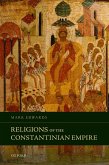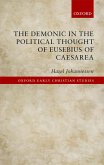What comes to light in this lively and readable volume is that the later medieval age was actually one of extraordinary achievement for the Church : of deepening and enrichment, as well as of schism and conflict. Yet the Later Middle Ages (1300-1500 CE) have often been characterised as a period of decline for Christendom. The era seems to sit uncomfortably between the remarkable achievements of church and society in the twelfth and thirteenth centuries, and the revivals of the Reformation and Counter-Reformation in the sixteenth century. The period has even been called a 'Babylonian Captivity' for the Church, echoing the struggles of the Israelites in exile, and reflecting the transferral of the papacy to Avignon in 1309. Writing with characteristic mastery of the sources, Norman Tanner challenges this negative view, examining a vibrant period of ecclesiastical history in its own right rather than just through the lenses of the centuries that preceded and succeeded it. He discusses the trials of the age in the form of the papal schism between 1378-1417, the heresies of Cathars, Lollards and Hussites, the Hundred Years' War, and the terror of the Black Death. Yet he focuses, too, on the great ecumenical councils, the flowering of intellectual life in the Renaissance and the extraordinarily rich spirituality of mystics like Julian of Norwich, Catherine of Siena and Meister Eckhart. 'A series such as this is hugely welcome. Its emphasis on the history of ideas, and on the global - not just European - experience of Christianity and its manifestations of church, will be valued by students, scholars and general readers alike. The I.B.Tauris History of the Christian Church brings ecclesiastical history into a new era, for a new generation'. - Diarmaid MacCulloch, Professor of the History of the Church, University of Oxford
Dieser Download kann aus rechtlichen Gründen nur mit Rechnungsadresse in A, B, BG, CY, CZ, D, DK, EW, E, FIN, F, GR, HR, H, IRL, I, LT, L, LR, M, NL, PL, P, R, S, SLO, SK ausgeliefert werden.









